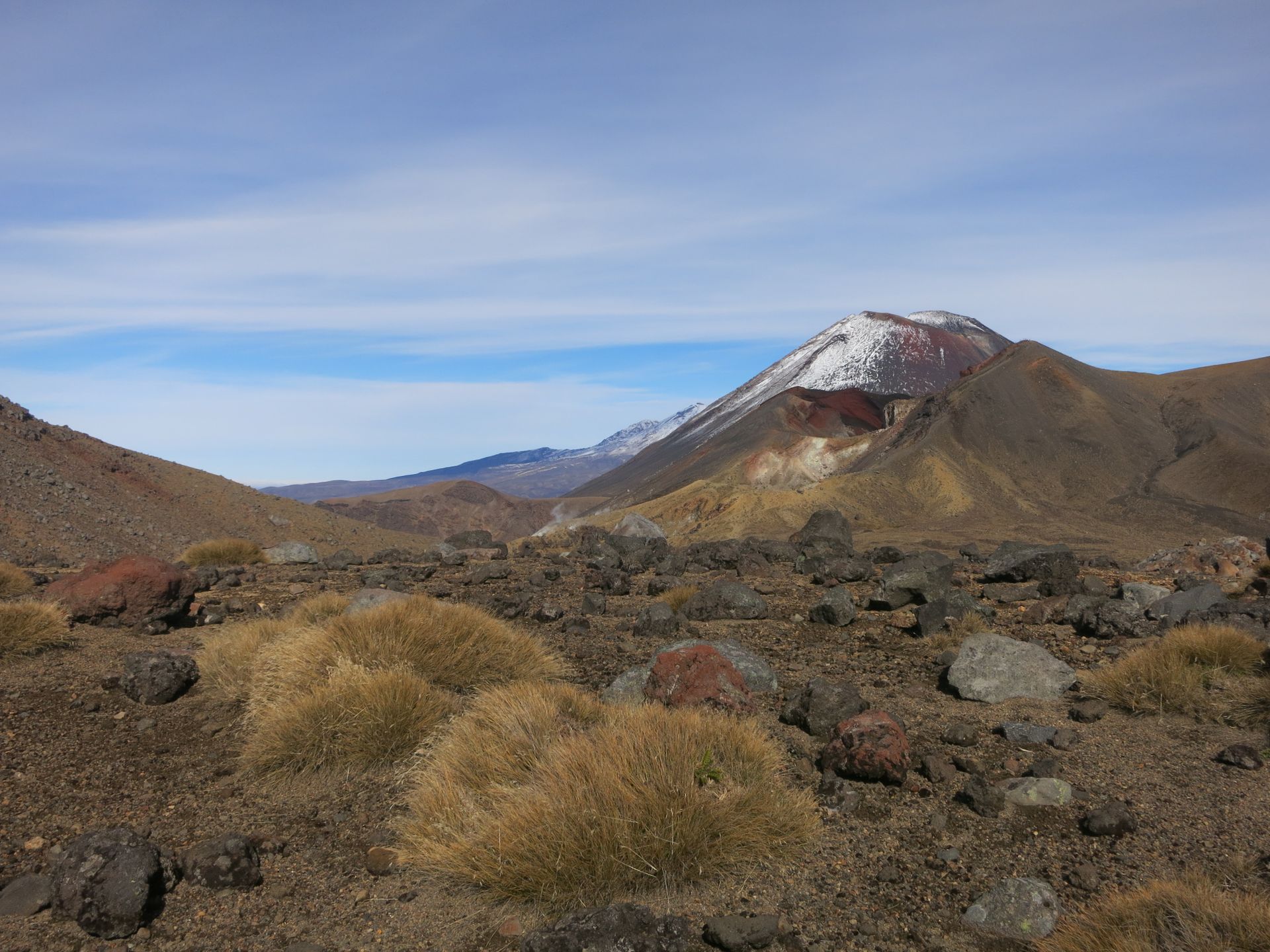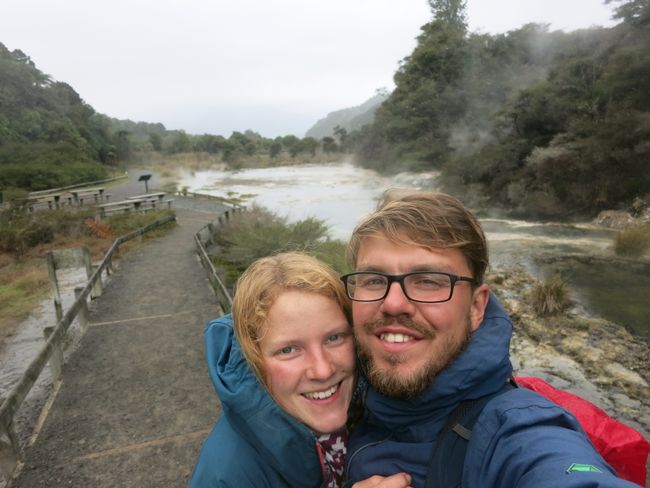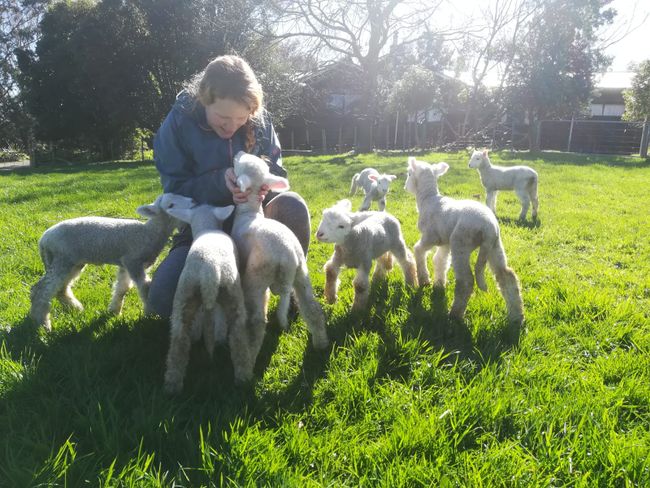Lämmies
E phatlaladitšwe: 24.01.2020
Ingwadiše go Lengwalo la Ditaba
We are already in August and we become more and more aware that our time in New Zealand is slowly coming to an end. We decided to do Wwoofing one last time and found a family in the Manawatu-Wanganui region, in the center of the North Island. We had a nearly 500 kilometer drive ahead of us. Since the area was unknown to us so far and the Wwoofing activities of the family corresponded very much to our interests, we gladly accepted the long journey.
We passed the Tongariro National Park for the second time, where we were already with Thomas. Now it was winter and there was snow on the high mountains. It was nice to see the area in a different season.
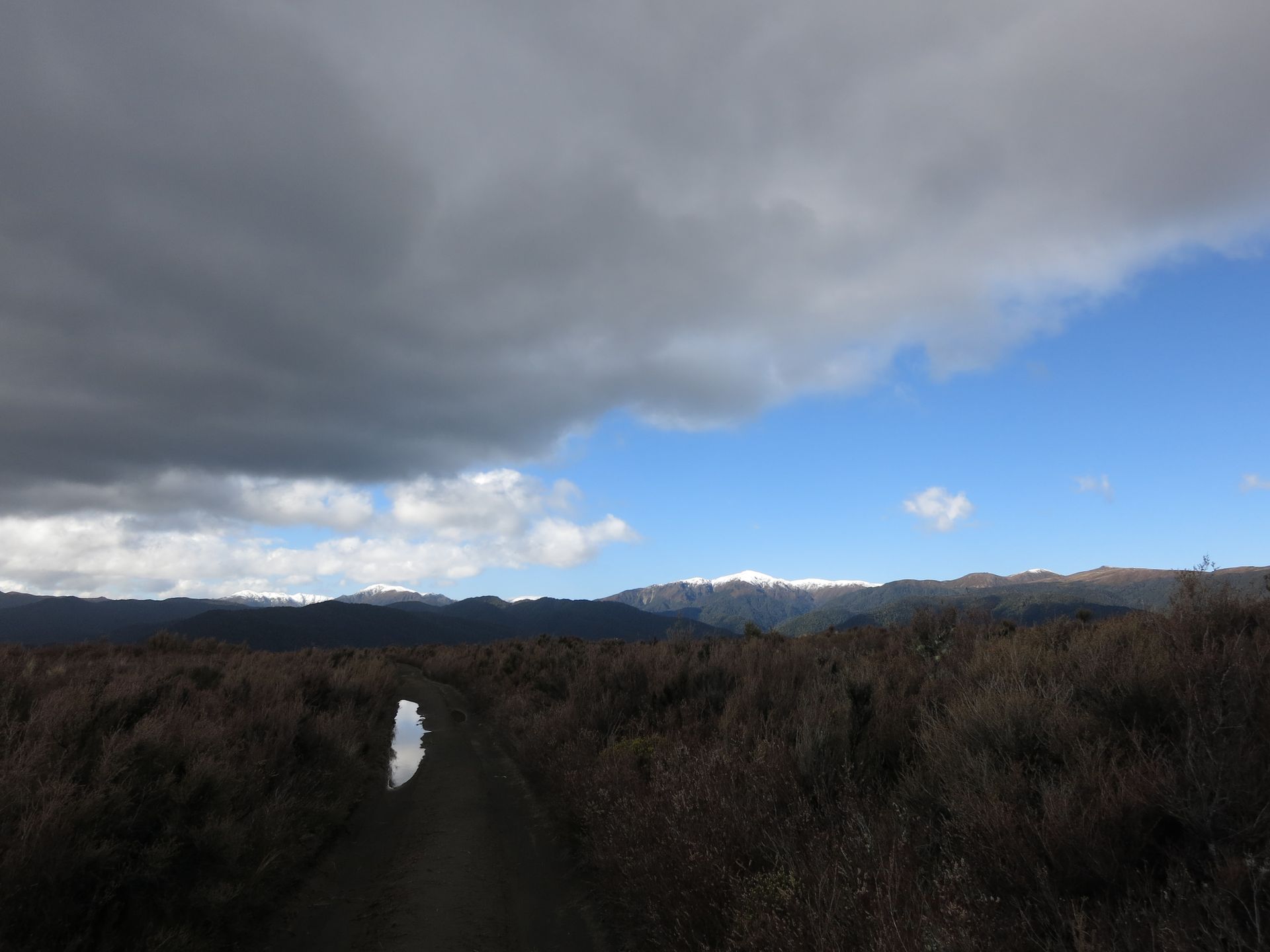
We also went to the river where Tim caught his last trout for the second time. Maybe you still remember the pictures from the sunny autumn day, the old bridge, the high cliffs, and the wide riverbed? During our second visit, it became clear why the riverbed was so wide... Tim hoped for another lucky catch. But as soon as he saw the gigantic river, which was at least three meters higher, he had to dismiss this hope immediately.
Off the Highway 1, we drove along the Stormy Point Route. At the highest viewpoint, it became clear why this route is called that. The wind swept over the hills, and in the setting sun, we saw a rare natural spectacle. In front of us lay one of the best-preserved river terraces in the world.
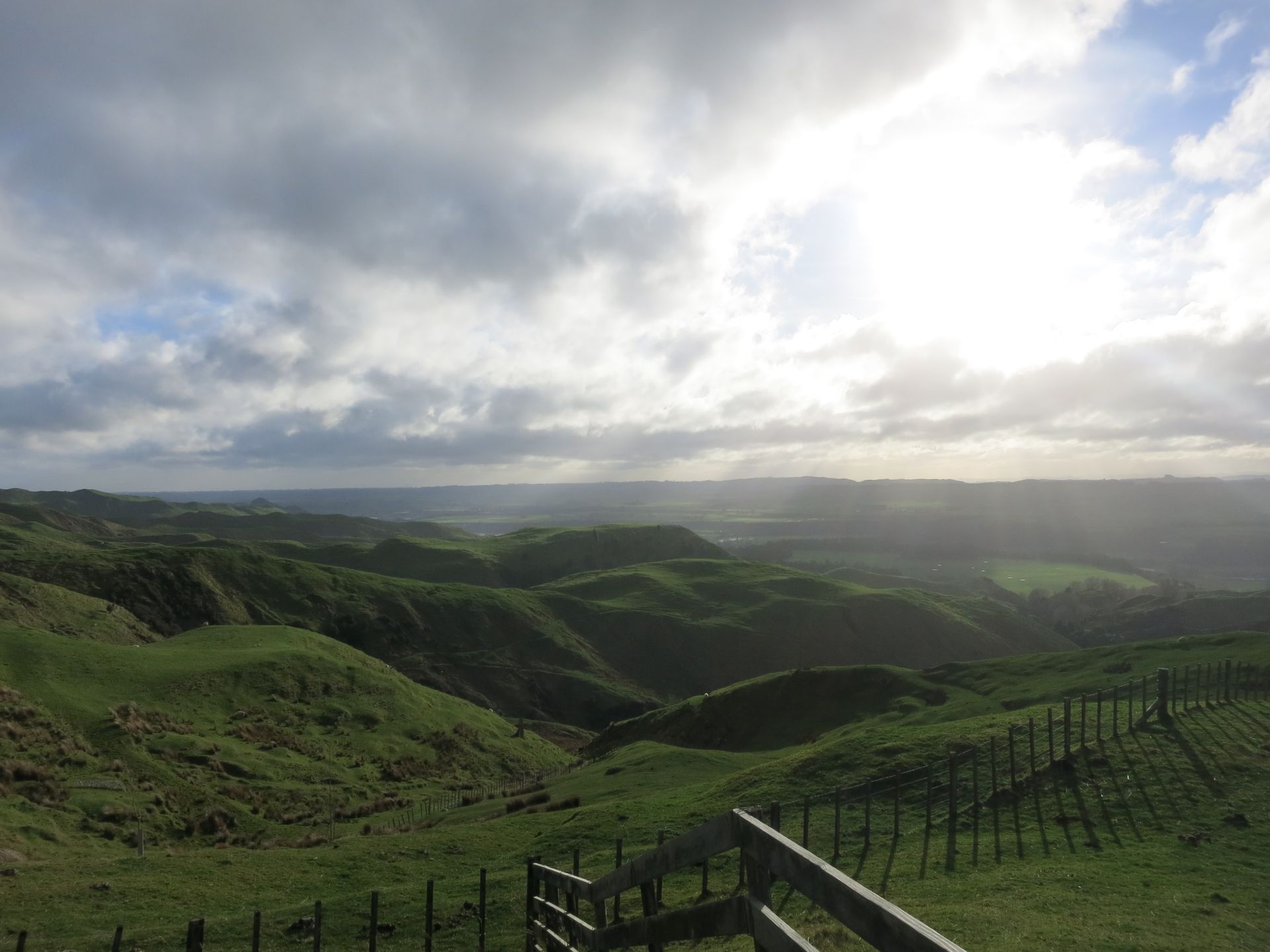
The next day, we arrived at the R. family. We drove onto the farm, and two dogs ran directly around our Odhi. Caro felt a little uncomfortable and preferred to wait in the car until it became clear that the two were really cuddly cats. The Rottweiler, with its 40 kg, probably underestimated how heavy and big he was. With Lou and Roy, we were going to experience many funny moments.
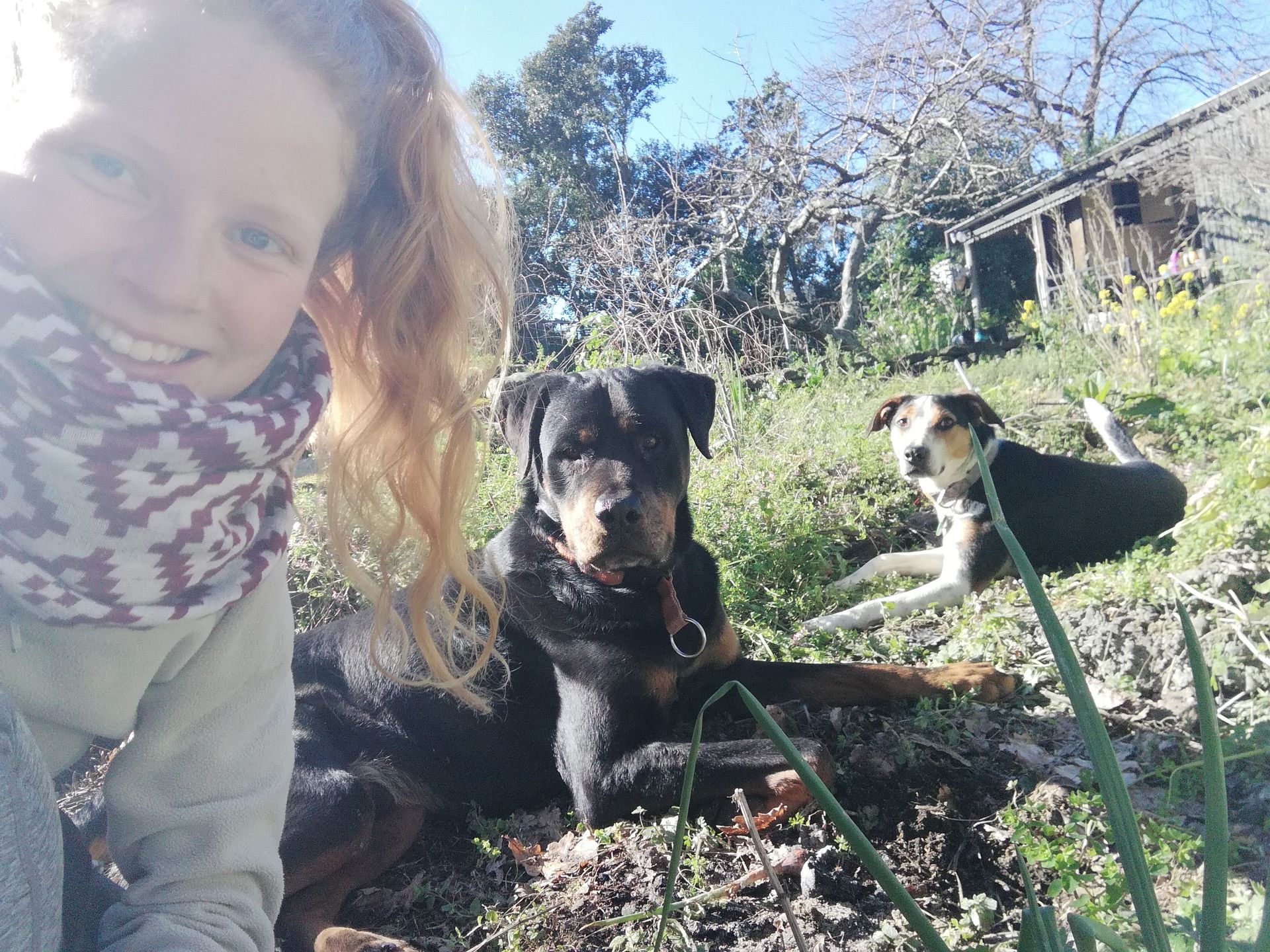
The father of the family warmly welcomed us. We chatted together for quite a while and drank tea. He seemed quite relaxed, working as a firefighter as his main job and having a hundred projects on the side like most New Zealanders. Quite a crazy bunch.
In the afternoon, we met the rest of the family, including a 7-year-old girl and a 5-year-old boy. We took a tour of the property, visited the own flock of sheep, and the huge greenhouse, where currently seven little lambs are being raised with bottles. Caro's dream of working with young animals again would finally come true in the next two weeks. These seven lambs come from neighboring farmers who have no use for them. For example, it happens that a sheep has more than two babies, although only two can effectively nurse. The weakest one usually starves to death.
We were immediately involved and Mrs. R. showed us how to fill the bottles and feed the lambs. Currently, this happens three times a day. At first, it seemed difficult to distinguish the little ones... Oh no, who have we already fed and who not? But we quickly got to know them and their differences, and after such a small lamb drank over 250 milliliters, its belly looked like a big balloon. Totally delighted and full of motivation, we carried out our daily task.
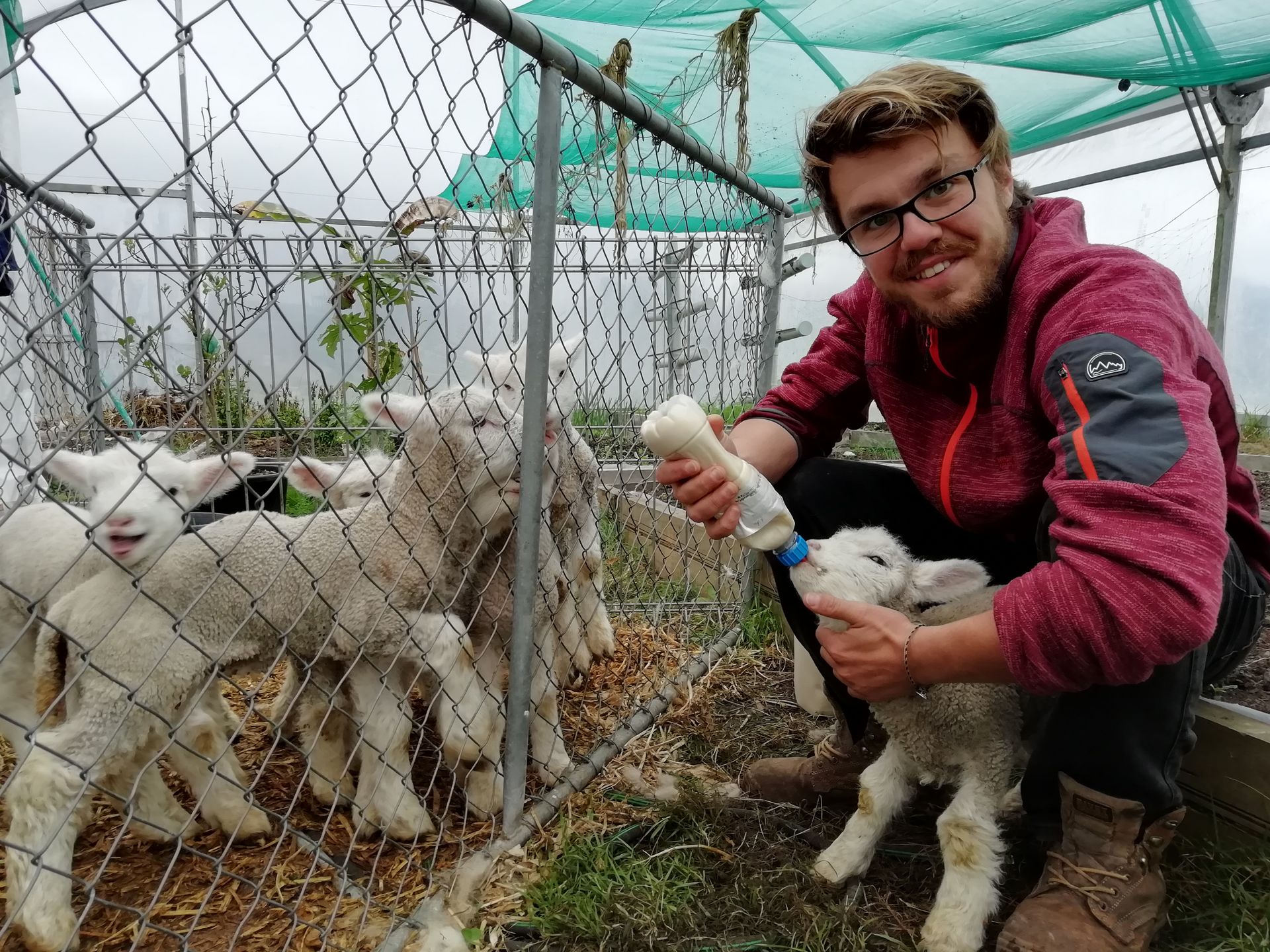
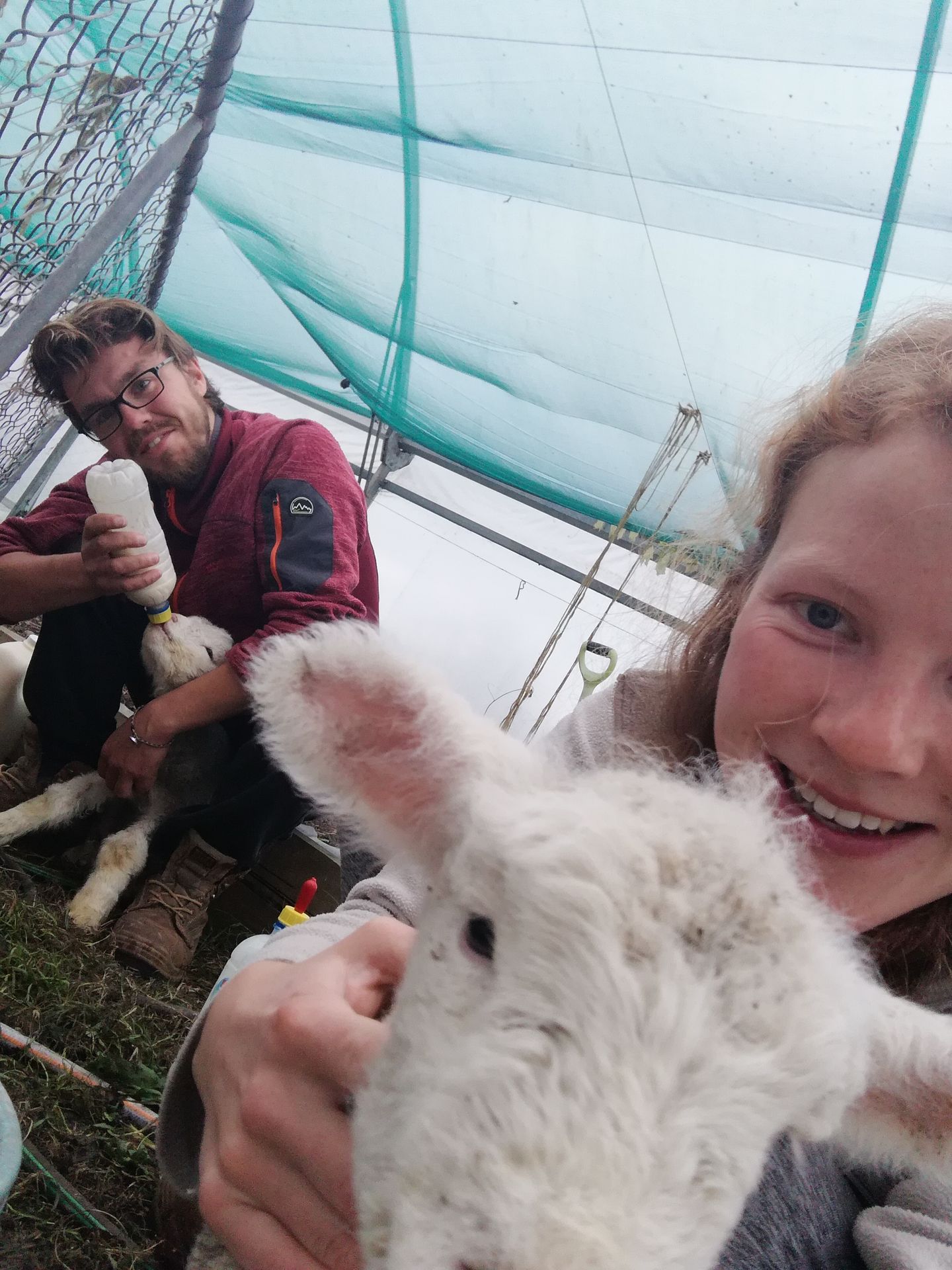
Even an old sheep from the own herd gave birth to a young one. Of course, this one should be raised by its mother. While we fed the adopted lambs three times a day, the weak, old mother couldn't provide enough for her child. We expressed our concerns but were not allowed to interfere, and one morning it was found dead.
The little ones were just too cute, and a particularly beautiful moment was leading them to the pasture for the first time. If anyone is interested in this sweet moment, we have it on video.

On a free afternoon, we took a trip to the Manawatu Gorge. Through this narrow and 10 kilometers long gorge, there is a railway line and a road, but it has been closed for safety reasons for several years. It looked like a forgotten valley, a road, and nobody drove over it. Our hike took us up the steep slopes, through typical forests, and rewarded us with a view of the gorge.
Since this was our last Wwoofing family, we would like to emphasize once again how much joy of life, fun, and different experiences we were able to gain from it. We learned intensively from beekeeping, agriculture, animal care, and a sustainable lifestyle, just to name a few areas. Many things we can and even want to try out in the future. Apart from one negative experience, we were always warmly welcomed by the families and were allowed to participate in their everyday lives as 'Kiwi's'. Most of the time, we felt like part of the family after a short time. Thank you very much!
Ingwadiše go Lengwalo la Ditaba
Karabo

Dipego tša maeto New Zealand
